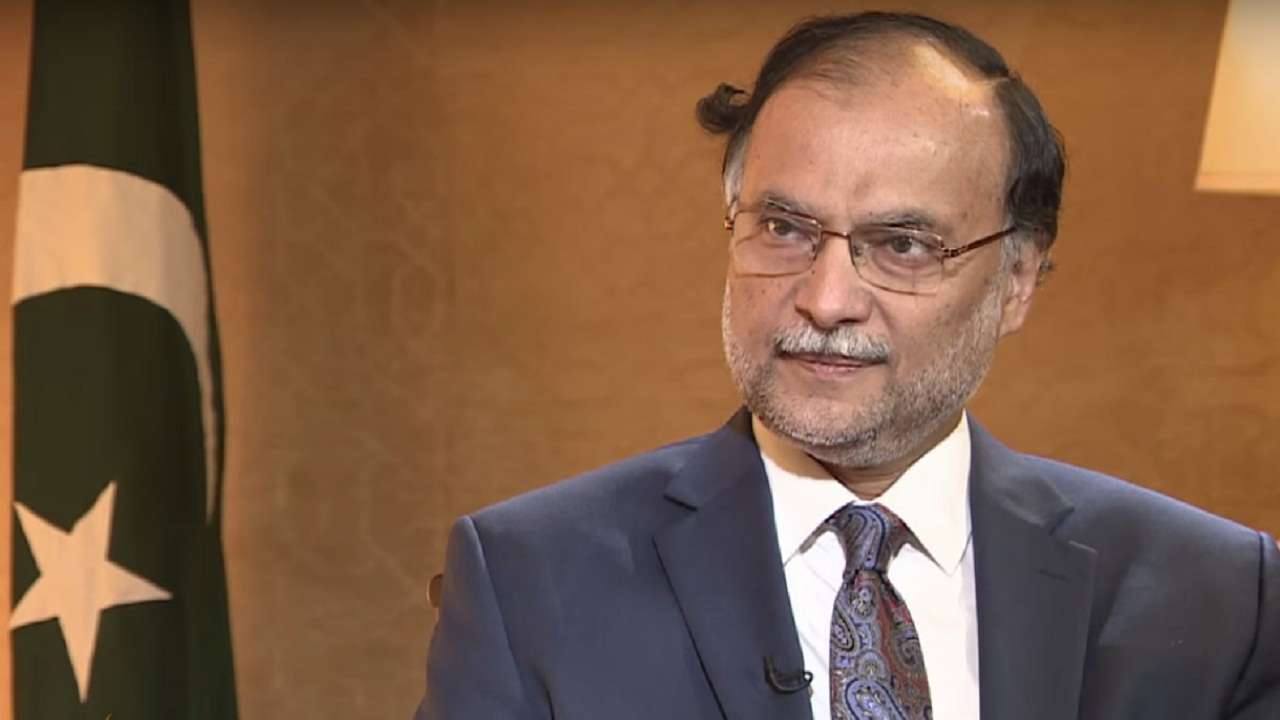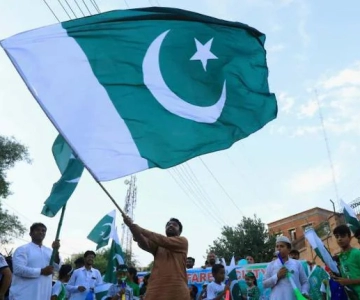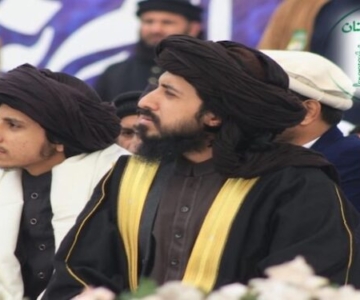May 13, 2018: The cost of launching and appeasing bigots is way too high
That the country’s Interior Minister, who is tasked with internal security and public safety, suffered an assassination attempt is alarming to say the least. Last week, the firebrand member of Nawaz Sharif’s team was attacked by a young zealot who later confessed that he was inspired by the hate speech recently unleashed by Tehreek Labaik Pakistan (TLP); led by a curious character called Khadim Rizvi.
The judicial ouster of Nawaz Sharif in 2017 led to a multi-pronged assault on his party and politics. In addition to the corruption cases that Sharif and his family face, the religion card has also been brazenly used to undercut his support in the Punjab, heartland of Pakistan’s largest province, and the region which will determine who forms the next elected government in the Centre. Last year, the ruling party’s government made a minor amendment to the oath that the parliamentarians take, in which they swear their allegiance to the finality of the Prophethood. The minor change was dubbed as a means of undermining the notion that Prophet Mohammad (PBUH) was the last messenger of Allah.
Since the declaration of Ahmadis as non-Muslims in 1974, the Pakistani state has step-by-step introduced zealotry everywhere. From the issuance of passports, ID cards to the oaths of public officials, there is an assumption that unless you declare otherwise you are a threat to the majoritarian religious beliefs. Blaming the state is easy but the intelligentsia has also played along. That is how bigotry is normalised and this is why when a sitting minister gets shot, the outrage is missing.
Last year, we witnessed fake news directed against the government — suggesting that it was attacking Khatam-e-Nabuwat. This was rolled out on a scale never seen before. Media outlets, the usual defence analysts who claim to be the voice of the establishment and opposition parties jumped on the bandwagon to use the opportune moment to their advantage. There was no assault on faith but it turned out to be a great opening to play up the extremist sentiments within some Barelvi groups. Earlier, the Sharif government executed Mumtaz Qadri, the murderer of Governor Salmaan Taseer, after the Supreme Court upheld the punishment meted out to him. The backlash then was expected but it has been cynically exploited by the coalition of anti-Nawaz forces who think that chipping away of the Barelvi vote in Punjab’s constituencies will reduce the total number of seats the ruling party may get in the forthcoming elections.
Last year, fake news directed against the government — suggesting that it was attacking Khatam-e-Nabuwat — was rolled out on a scale never seen before. The mainstream media failed to inform the public, thereby representing a colossal failure of journalism that let propaganda on a trumped up religious issue fester
The fake news cycle continued even after Ahsan Iqbal was attacked. PTI leaders including Abrar-ul-Haq who rose to fame singing bawdy songs almost blamed the victim for the violent assault. In fact, he asked PMLN and Ahsan Iqbal to apologise for something they had not done. His leader Imran Khan has strengthened his arsenal by including another public defender of majoritarian faith and adroit media player Dr Amir Liaqat in his party. In fact, Khatam-e-Nabuwat will be an issue that is highly likely to be employed in the forthcoming elections.
Such political shenanigans masked as pious moves have a long history of backfiring. Since the passage of Objectives Resolution in 1949 — another attempt to appease the Mullahs and find political legitimacy and an anchor for nation building — every instrument using religion has divided this society. Reliance on faith alone could not 4save a united Pakistan; for a good number of East Pakistanis (now Bangladeshis) revolted against that. Bhutto, the secular-socialist politician, spearheaded the further Islamisation of Pakistan but that ultimately could not redeem him or the democratic project of the 1970s. The right-wing was successful in ousting Bhutto with the active support of the military junta.
The decade of the 1980s built on what Bhutto had framed as the new ‘Islamic’ national security state with both the ‘Islamic [nuclear] bomb’ and a Pan-Islamic identity under its belt. Since then the process has been virtually irreversible despite the attempts by Gen Musharraf to revise some of the draconian laws and even reform the application of the blasphemy laws. If anything, Nawaz Sharif’s government was attempting to reverse the tide with the support of the Punjabi street. But the PMLN efforts were marred by its constituency politicians invoking toxic sectarian passions and the royal son-in-law paying homage to Mumtaz Qadri even when the federal government had taken a different position on the issue.
The appeasement of the TLP at the end of November was an ominous sign. The so-called agreement with Khadim Rizvi and other goons who attacked police and damaged public property were let off the hook. The weak government had to bow down after its failed attempts to dispel protestors. An accord brokered by the military; and the envelopes distributed to the zealots were nothing short of incentives to continue their job. That was the time when political parties in unison should have rejected the fake news and stood by the civilian government. But in their petty pursuit of transient power — for the latter lies elsewhere — they forgot that tomorrow they will be undermined with the same instrument. And the mainstream media — one TV channel even distributed free food to the bigots assembled in Islamabad last year — did not inform the public either. It was a colossal failure of journalism to let propaganda on a trumped up religious issue fester.
No wonder a twenty-something young man driven by religious passions and the false notion of blasphemy, tried to kill a minister who incidentally is from a deeply faith-based background. The day is not far when the zealots of today will be attacked by a new crop of bigots. This is how the vicious cycle of sectarian hate and fear continues.
The PPP and ANP suffered unprecedented violence before the 2013 elections. Let’s hope the PMLN will not be on the receiving end. For this pattern of aggression must be broken. Yet it can only happen through political consensus that includes the establishment; and by building an informed public opinion. Both pre-requisites are missing in 2018.



